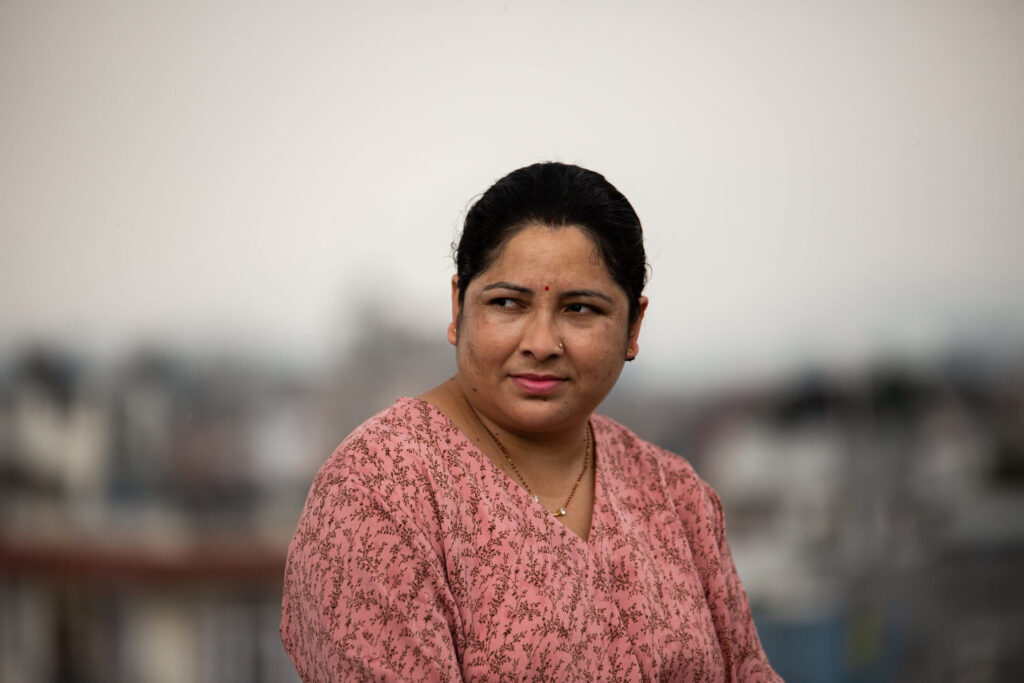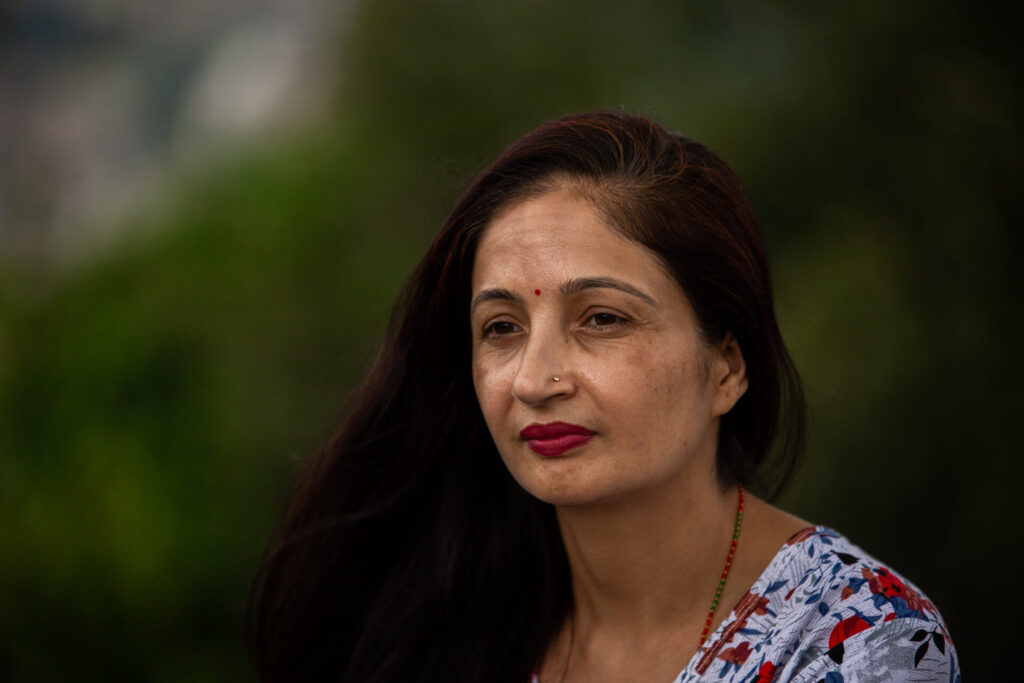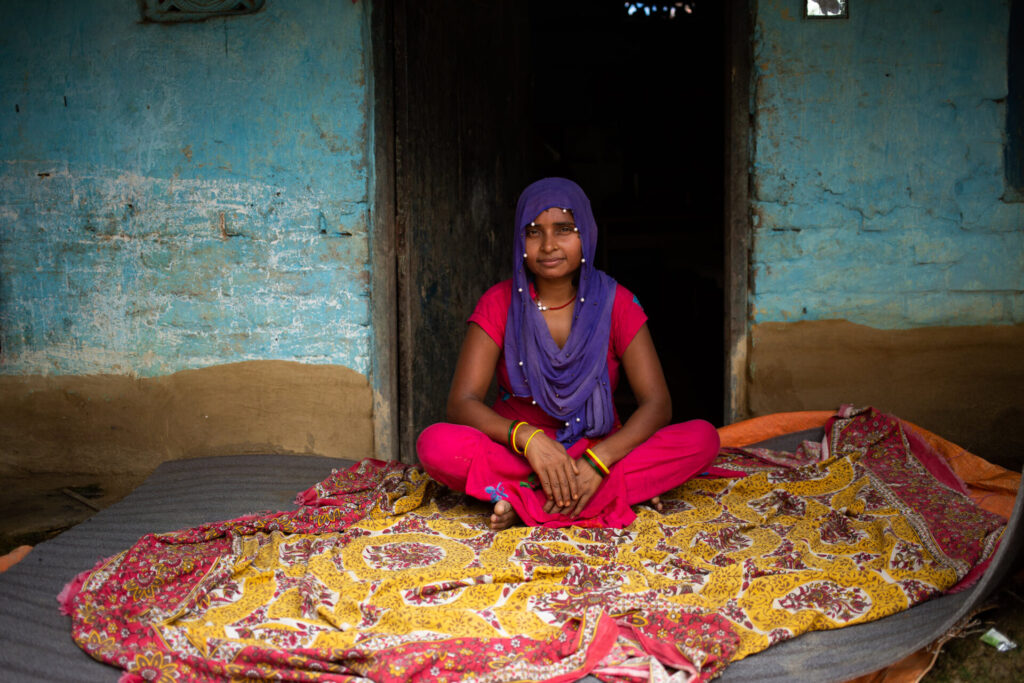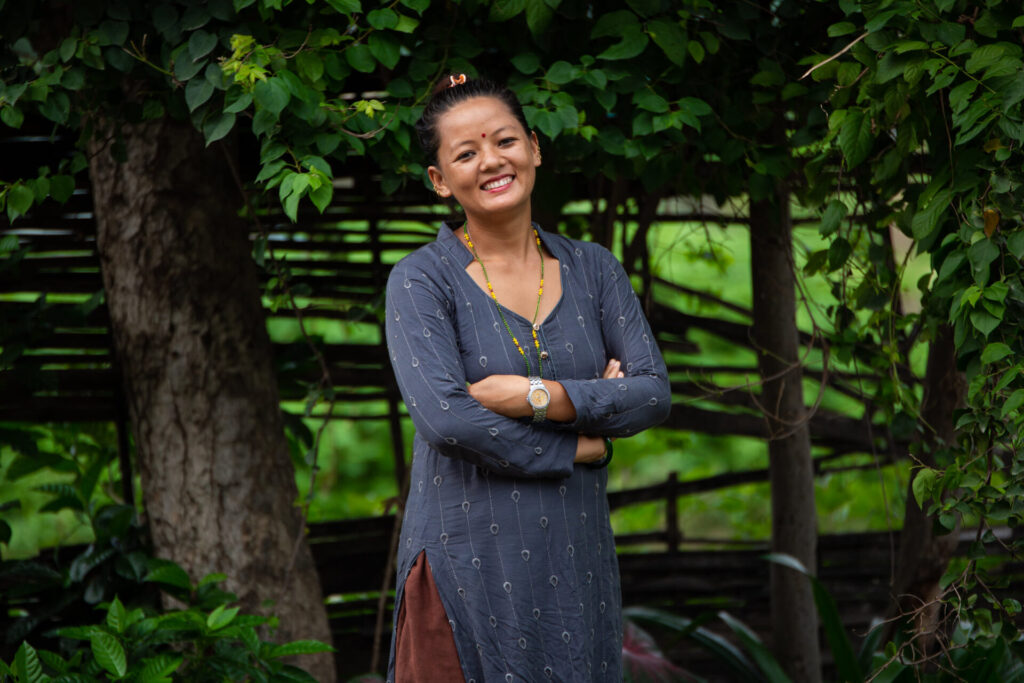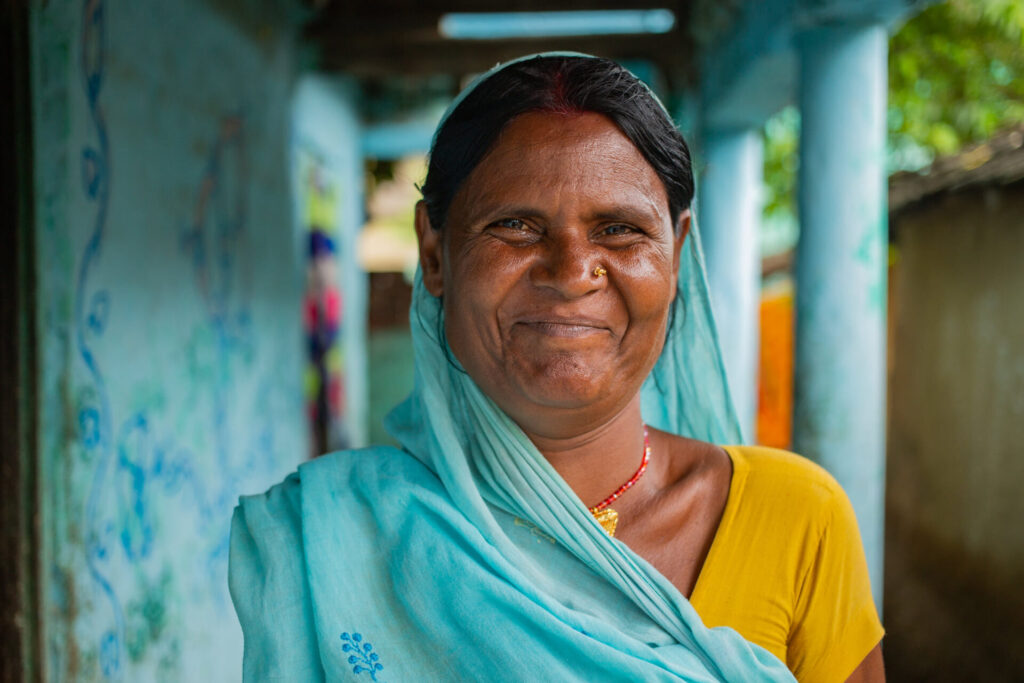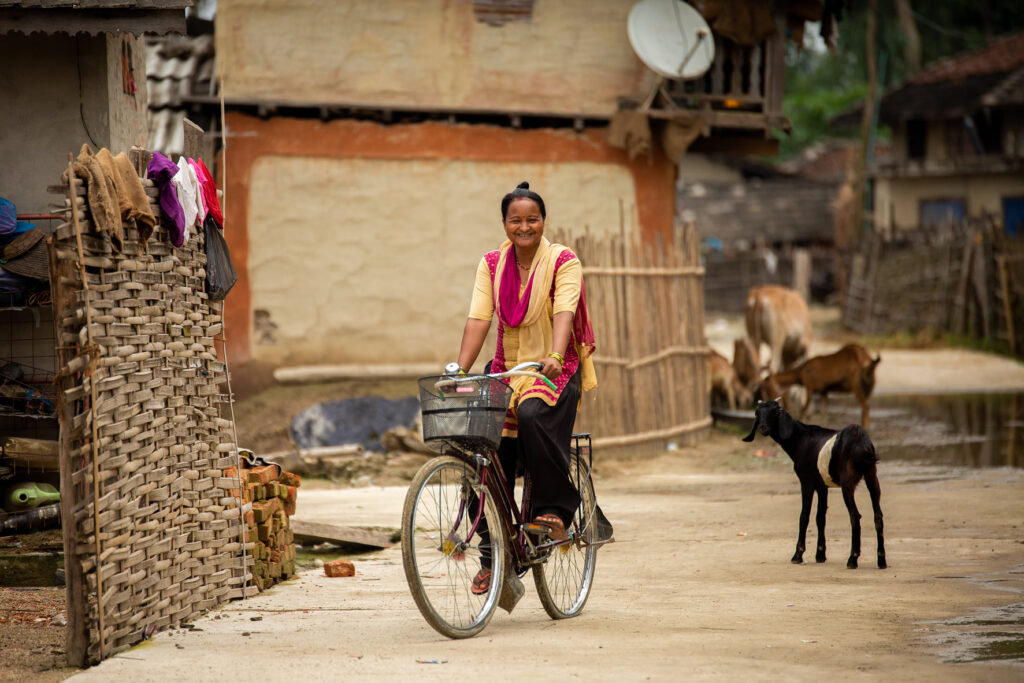
The Stories of Nepal Covid-19 Relief Fund was set up originally to support daily wage workers in the Kathmandu Valley with food parcels and essential supplies. As your generous donations continued to flow in we were able to call upon our local community partners across Nepal and channel those funds directly to marginalised communities and individuals who live at the intersection of multiple societal oppressions and as a result of which their capacity to weather the impacts of the Covid-19 lockdown were drastically reduced. When we felt that we had accomplished what we had set out for we paused our fundraiser to gather ourselves and observe closely how things would unfold.
You can find the details of our efforts in the first phase of fundraising here. https://bit.ly/3huYpic
In light of the extension of the nationwide lockdown and more specifically because of increasing uncertainty within the situation as it unfolded across the country, we decided to resume the fundraiser in May. We again touched base with the communities we have visited in the past, our local partners, volunteers, journalists in several districts to understand and assess how best to use the funds to support communities, families, and individuals directly impacted by the lockdown. Our experiences tell us that the most rapid and impactful responses come when resources, support, and funds are channeled directly to communities to distribute themselves. Enabling them to create solutions that work for them, keeping human dignity at the fore of everything we do.
We have utilised our community partners and network of supporters across Nepal to be discerning, fair and proactive in distributing support where it is most needed, in the form that it is most needed and at the time it is most needed. Different communities are experiencing this situation in different ways and we have been responding in real-time. In this second phase, we have been able to distribute your donations in the following relief efforts. While we are reporting numbers to you now, because we want to be open and transparent about where every dollar has been spent, we also want to kindly remind readers of the very real lived experiences that these numbers represent, the very real people who are on the receiving end of this support. Stories of Nepal is, amongst many things, a call to return our collective humanity and humility.
Let’s read on:
Kathmandu Valley
We have provided financial assistance to 20 women living in the Kathmandu Valley. This financial assistance was delivered in the form of seed funds, cash grants, rent support, food parcels, nutritional support for mothers and children. The women who received support are pregnant, or nursing newborns, and are facing a severe financial crisis due to the lockdown and many are survivors of gender and domestic violence.Central Prison Hospital in Kathmandu has been experiencing a shortage of vital supplies. The hospital treats prisoners who are taken ill and arrive from prisons from districts across Nepal.
We have been able to deliver Personal Protection Equipment and hygiene kits to their staff to help ensure that they can continue with their work safely.We were also able to deliver food parcels to 50 individuals within the LGBT+ community. Many of these individuals have been unable to earn any form of income to pay their rent and are unable to speak out, be visible, or leave their premises due to fear of violence and the stigma cast upon them.

Mahottari
We were able to put together tiffin packs to Nepali Migrant workers who found themselves stuck at the Nepal – India border area in Bhittamore, Mahottari. 400 tiffin packs were distributed over a course of a few days to individuals, many of whom hadn’t eaten more than a meal a day since setting off on their journey home.We were able to distribute 60 food parcels to families in Matihani NP 9 in Mahottari. The Chamaar community, like many others, were facing severe effects of the lockdown as the market they frequented just across the border was now shut, and due to inflation created by scarcity, they were not able to afford simple daily essentials.Your support enabled us to work with our partners in Mahottari to put together a total of 100 Personal Safety & Hygiene Kits that were delivered to the quarantine camps in Jaleswar and Dhirapur, Matihani.
Dailekh
The biggest concentration of people moving from India home to Nepal is in the Karnali area and these centres are some of the most over-crowded and under-resourced. We were able to supply the quarantine camps in Aathbis NP, Dailekh with sufficient food supplies to cater to 200 residents across a number of quarantine camps for the duration of their two-week quarantine at the facility.
Doti
We were able to put together and deliver 200 hygiene kits for the residents of the quarantine camps in Sayal GP, Doti. We also added nutritional support and menstrual supplies for 45 nursing mothers and pregnant women in these camps. As buses came into Dipayal, we were in a position to extend our distribution of sanitation kits and nutritional support to the incoming passengers before they were transferred onto the awaiting tractors and trailers and sent to their designated quarantine camps.
Dhanusa
We were able to put together a total of 80 Personal Safety & Hygiene Kits which were delivered to the Gopal Dharamshala quarantine camp in Janakpurdham SubNP 4, Dhanusa.We were also able to put together a total of 100 Personal Safety & Hygiene Kits which were delivered to the Janata Uccha Madyamik Vidyalaya quarantine camp in Dhanusadham NP 3, Dhanusa.We were also able to fund the delivery of essential food parcels for 20 families within the Dalit community in Benga, Janakpurdham SubNP 19.-
Sarlahi
With our long time partner Dalit Sarokaar Manch, we worked in consultation with the wider community and established that the most impactful way to support families in Sarlahi would be through nutritional support and masks. We utilised funds to distribute food parcels and masks to 105 families from the marginalized communities of Dom and Mushar communities in Bahatwa NP 8 and 10 and Haripur NP 4 in Sarlahi.
Sindhuli
Following on from the financial safety net we established through our partnership with Aperion in the first phase of the fundraiser. We have been able to extend the financial support to an additional ten women who have survived gender-based domestic violence in Sindhuli. These financial support packages amounting from 10,000NPR to 25,000NPR for the women to use at their discretion.
Mugu
We have been working in partnership with the communities of Mugu for a few years now. In this second wave of fundraising, we worked to transport and procure items to create hygiene kits and food items for 250 residents of the quarantine centres in Buddha Madyamik Vidyalaya in Ward 8, Kailash Boarding School in Ward 9, Himali Primary School in Ward 7 and Pulu Madyamik Vidyalaya in Ward 6 all of which are in Mugum Marmarong GP, Mugu. You may remember we shared a story and a short video of Jay Krishna Nepali singing songs based on his life not too long ago. We were able to locate him and provide financial assistance to him through our partners in Mugu.

Siraha
Throughout the duration of the fundraiser, we identified that nutritional support and food parcels were going to be the most impactful way to support families. We were able to distribute 100 food parcels to families in Maanik Daha and Danda Tole in Lahan NP 24 and Rampura, Mirchaiya 9 in Siraha.

Saptari
We were able to repair and rebuild homes of 4 Dalit families in Kanchapur whose homes were ravaged by the incessant rain and the flash flooding. One of the families in receipt of this support is the family of Malar Sada who recently died of starvation due to the lockdown. We have been able to assist Malar Sada’s wife, Jaleswari Devi Sada, and further three families with rebuilding houses so that they have a place they can call home. Our hearts are with Malar Sada and his family and all those who will be killed by the pandemic whose names we may never know.
Rautahat
In Rautahat we supported 140 families of the Dalit communities in Gadimai NP, Ward 3. We prioritised the distribution to single mothers and individuals living with disabilities from Musahar, Dushad, and Chamaar communities.

Mutual Aid Families of murdered Dalits
We were also able to contribute to the Mutual Aid to 3 families of murdered Dalits – Angira Pasi, Sambhu Sada, and Raju Sada.
We know from experience and previous crisis responses in Nepal we know that the most rapid and impactful responses come when resources, support, and funds are channeled directly to communities to distribute themselves, to create solutions that work for them. So this is exactly what we have done. Should such a time arise in the future that we feel the most beneficial decision is to start another fundraiser we will not hesitate to do so. The support of this community has been simply astounding.

Acknowledgments
Kathmandu – Kusum Tamang and Team, Hiteri Foundation; Juju Kaji and Team, Heartbeat Nepal; Karuna Gauchan, Rinu Shrestha
Saptari – Bhola Kumar Paswan and Team of Dalit Sarokaar Manch
Dhanusha – Vikash Kumar Shah and Team
Mugu – Jiban Sejuwal and Team
Dailekh – Dipa Bohora, Bhakta Shahi
Doti – Dil Bahadur Singh
Sindhuli – Pragyaa Rai, Gita Devkota, Apeiron Nepal
Kanchanpur – Laxmi Dhital/Sara Parker, DWD Team; Ganesh B.K, Ward Chair, Bedkot 5, Kanchanpur
Bajhang – Jagadish RokayaKeti_Keta
Paris Astrid Beseler, @Fondation Audrey Jacobs
Tashi Lama & Carmen Lama, TGIFW, St. Gallen, Switzerland
Bikram Leo Subba, FC Louisville Rising Stars, UK
With the utmost sincerity, Thank you.


